 World Weaver Press will be open to queries during the month of February 2017. The full guidelines can be found here, but our editors have offered a bit more insight into what they'll be looking for this time around. Here are the non-negotiable basics: At this time, World Weaver Press seeks standalone titles only, between 20,000 words and 100,000 words. Standalone means the story is complete in one volume. We are not acquiring new series (or books with "series potential") at this time. World Weaver Press publishes in both digital (ebook) and paperback (print on demand) formats. Unagented submissions welcome. Please note that we will only be considering standalone titles. If you envision your book as the start of a series, it's not right for us at this time. We've already committed to several trilogies and multi-book series, and we need to finish publishing those before we can take on more. Assistant Editors Cori Vidae, Trysh Thompson, and Rhonda Parrish will be reading submissions, as will Editor-in-Chief Sarena Ulibarri. See what they're each looking for below. Rhonda Parrish, Assistant Editor I'm interested in Adult or Young Adult novels with well-developed characters, interesting settings and strong voice. I love to be surprised, but if you were to surprise me with a dieselpunk novel with a protagonist I could really cheer for, a solarpunk story with meaty conflict, or a fresh take on a steampunk tale, I would be especially excited. A more in-depth MSWL can be found here. Want to know more about what Rhonda Parrish looks for in a story? Check out some of the books she's already edited for WWP: Trysh Thompson, Assistant Editor It's not a big secret that I'm a sucker for a good Paranormal Romance. Vampires, shifters, witches, humans with mutant powers... you bring a good paranormal creature and a romance that will make me stay up late to read it, we're going to get along just fine. I want strong characters who are fully developed and jump off the pages. Bonus points if your characters are snarky. I'm primarily into New Adult and Adult, but if you've got the next Harry Potter on your hands, let's talk. Want to know more about what Trysh Thompson looks for in a story? Check out some of the books she's already edited for WWP: Cori Vidae, Assistant Editor I’m always interested in romance with well-developed characters (with good chemistry!) and interesting plots and settings, but this year I’m particularly interested in titles that fall into one (or more!) of the following categories:
Want to know more about what Cori Vidae looks for in a story? Check out some of the books she's already edited for WWP: Sarena Ulibarri, Editor-in-Chief I'm interested in fun adventure science fiction that shows a future we might actually want to live in. Either Earth-bound or space-faring, I enjoy aliens and other strange creatures, and thoughtful, pro-science approaches to advanced technology. I'm highly interested in solarpunk, an emerging genre of optimistic science fiction spotlighting renewable energy technologies and environmental issues. If you've written a standalone science fiction novel or novella that is 1) fun, 2) hopeful, 3) near- or far-future, I'd like to see it. I gravitate toward Adult, but I'll consider Young Adult as well. I will also be considering single-author short story collections comprised of any stripe of speculative fiction from writers who have published regularly in the prominent pro- and semi-pro SFF magazines. See full guidelines for more details. Want to know more about what Sarena Ulibarri looks for in a story? Check out some of the books she's already edited for WWP: Think you have something we'll be interested in? Check out the full guidelines and send us a query in February.
0 Comments
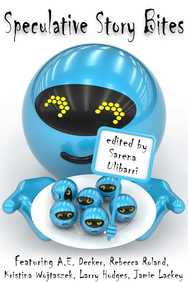 "This Old House" by Nora Mulligan is original fiction from the anthology Speculative Story Bites. Get the whole anthology from Amazon, Kobo, or World Weaver Press. The disappearance of the kitchen was the last straw. Bill and Susan had been very reasonable and accommodating before that, even when the bedrooms expanded and then contracted, and when the bathroom migrated from one end of the hall to the other. They’d been understanding when the living room ceiling rose to a height of ten feet and then shrank so Bill was nearly bumping his head against it. And while the porch’s changes in size and shape had excited some comments from confused neighbors, they’d managed to deal with that. But the kitchen was another story, especially when it disappeared just before Susan was going to make dinner. “Maybe the house wants us to get take-out,” Bill said in an attempt at humor. “What if I’d been in there?” Susan asked. She wasn’t laughing. “What if I’d been five minutes early rather than five minutes late?” “Now, honey, it’s never hurt anyone before, and you’re one of its people. It wouldn’t ever do anything to you.” He laid his arm over her shoulders. She shook it off, fierce. “That was then, Bill. It used to be rational. It used to understand us, or at least try to understand us. Now I wouldn’t be surprised at anything it does, and I certainly wouldn’t count on its not hurting one of us.” “I suppose you’re right,” said Bill with a sigh. “We’ll have to call someone. I was hoping to save the money, but, well, I guess we’ve reached the point of no return.” The House Doctor came in the next day, because they’d managed to convince him it was an emergency. He was one of the best house doctors in the state, and Bill shuddered at the thought of how much this would cost, but both he and Susan were impressed by the man’s care and attention to detail. The doctor walked slowly through all the rooms of the house, even the unused ones in the attic and the unfinished part of the basement, taking notes all the time, nodding to himself. The basement reshaped itself as he walked through it, the washer and dryer changing places with the furnace. One of the bedrooms had budded off, so there were three when the doctor explored them, but he didn’t actually witness the budding, just the results. He questioned them about the length of time they’d lived there, the behavior of the house in earlier days, and how long this new random behavior had been going on. He frowned and shook his head when the couple finally came to the conclusion that the changes had been occurring over the last six months. “You should have called me much sooner,” he said, folding his arms. “There’s only one option now, I’m afraid.” Susan and Bill exchanged glances, worried. “What do you mean, doctor?” Susan asked.  He lowered his voice. “The damage is too great. It’s gone senile beyond reclaiming. Five months ago, even three months, we could have attempted surgery, changed the air, done some rewiring. Now it’s too late. None of that would work.” “So what are you saying?” asked Bill. He hoped his guess about where the doctor was going was wrong. It wasn’t. “We’re going to have to kill it, I’m afraid,” said the doctor, shaking his head. “And the sooner, the better. Who knows how much more it’s going to deteriorate if we let this go on.” Susan felt a pang, ashamed that her first thought was that it would cost less to kill the house than it would have to fix it. It had been a good house, she thought, all those years of their marriage, and it deserved a little grief at least. “All right,” said Bill, his voice unsteady. “If you think that’s necessary.” “I’m afraid so,” said the doctor. The walls of the living room trembled at his words, and the carpet shrank and then disappeared. “It’s aware,” said Susan. “Maybe we should consider another way.” “Foolish,” said the doctor, shaking his head as he opened his bag, removing a long thin tool that looked like a cross between a wrench and a dentist’s drill. “The longer you wait, the worse it will get. Guaranteed. Your box is down in the basement, isn’t it?” “Yes,” said Bill. “That hasn’t moved at all.” “It will be over quickly,” said the doctor, more to Susan than to Bob. His voice was brusque, but he clearly meant to be reassuring. They followed him to the door of the basement, which changed color three times as the doctor attempted to turn the knob. First it was a knob, then a latch, then a thing with buttons and numbers, but the doctor finally managed to open the door and start down the stairs, holding his tool by his side. They both saw it happen. The house waited until the doctor reached the bottom of the stairs, and then the entire basement folded into itself like an origami paper. The doctor screamed once, but when the basement unfolded again, there was no sign that he’d ever been there, unless the pattern on the floor that resembled a hand with a tool counted as a sign. The door closed by itself, and Bill and Susan held each other’s hands. The floor rumbled ominously. Nora M. Mulligan has been writing all her life and has had short stories published in various online and print venues. She lives in New York with a husband and the obligatory two cats.
We've been hinting at this one for a long time now, and it is finally time to show it off! DREAM EATER by K. Bird Lincoln is the first in a new urban fantasy series about a half-Japanese college student who discovers her mythological parentage. DREAM EATER will be available in ebook and paperback April 4, 2017.
Koi Pierce dreams other peoples' dreams.
Pre-Order:
Ebook Amazon Barnes & Noble Kobo iTunes World Weaver Press Trade Paperback World Weaver Press About the Author
K. Bird Lincoln is an ESL professional and writer living on the windswept Minnesota Prairie with family and a huge addiction to frou-frou coffee. Also dark chocolate-- without which, the world is a howling void. Originally from Cleveland, she has spent more years living on the edges of the Pacific Ocean than in the Midwest. Her speculative short stories are published in various online & paper publications such as Strange Horizons. Her first novel, Tiger Lily, a medieval Japanese fantasy, is available from Amazon. She also writes tasty speculative and YA fiction reviews under the name K. Bird at Goodreads.com. Follow her on Facebook.
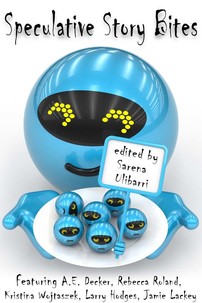 "Ligeia" by Sandi Leibowitz is original fiction from the anthology Speculative Story Bites. Get the whole anthology from Amazon, Kobo, or World Weaver Press. I cry out as the new bones burst through my shoulders. As the pain ebbs, I crane my neck to watch the young wings form and fledge. The down-feathers are spotlessly white. I touch them in wonder. Speckled plumes grow, dove-white and crow-black. Red flight-feathers the color of poppies. *** The rest of us traipsed after her. The other maidens lagged in a flock, their arms laden with blossoms, laughing together. They sounded like a chorus of crows. I looked only at her, following as closely as I could, breathless in my attempt to catch up. No one ran as fast as she. She leapt through the wheat, feet barely touching the ground, swept over a rise and disappeared into the lower meadow. When I gained the hill and found her again, my heart pounded as if she’d been gone for a year instead of a moment. She stood in a field of poppies, her mouth out-reddening the flowers, her wild hair more golden than the wheat. My hands itched to smooth back the straying curls. She bent and in a single quick gesture, reaped a sheaf of poppies. She whipped them in arcs over her head until the field bled red petals. “Fly, Ligeia, fly!” She dropped the headless stalks, grasped my hands and swung me dizzy. We collapsed to the grass, the sky spinning and spinning above us. The other girls were far behind. Could I kiss her while they weren’t looking? Would she mind? She stood. I’d waited too long. “Catch me, Ligeia!” In a breath she was gone. *** When the wings are fully formed, I test my control of them. They open and close as I bid, working like any other muscles. They will bear me through the air; the goddess has declared it. She did not ask us if we agreed to this transformation. I cannot help but feel joy in this change. The wings are beautiful and will lift me to the sky. Who has never yearned to fly? Oh, she would have loved to sprout wings! Leucosia stares into space, an empty vessel. The others still grieve, shivering and squaking at Demeter’s violation of their bodies. I am struck with pity for them. If we don’t admire our wings, then we are merely monsters. “What are we?” anguished Molpe cries. “Sirens,” the goddess answers abstractedly. She doesn’t spare us a thought, cares only for the return of her daughter. “Search for Persephone,” she commands. “Fly to all the corners of the earth, every mountaintop, each deserted sea-spawned rock. Bring her back.” I’m the one who lost her. I’m the one who witnessed the earth open. Watched the dark god with eyes as black as the hearts of the poppies emerge—watched him grab her waist and pull her down below. But before the earth swallowed her, I saw her turn to kiss him with her red mouth. I’ve told no one. "What have I done?" Toby Platt, the protagonist of Larry Hodges' novel CAMPAIGN 2100: GAME OF SCORPIONS, is a cut-throat campaign manager who helps elect conservative candidate Corbin Dubois to the office of President of Earth even though he no longer agrees with any of his policies. When Dubois orders an attack on an alien who's trying to make first contact, Platt finally throws up his hands and decides he won't help Dubois get re-elected—instead, he's going to run himself and set things right. Here are some quotes from Amazon readers about CAMPAIGN 2100: Campaign 2100: Game of Scorpions is an excellent diversion in these divisive political times. ...the future setting is so skillfully done by Hodges that it intrudes not a whit on the many parallels between fiction and our present dismal political situation. This book struck me as very relevant given the garbage tornado that is our current election. Definitely a must read if you want to get your mind off the current political mish mash. 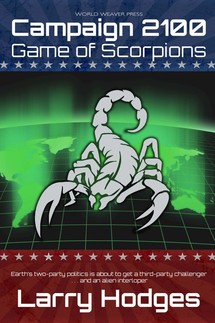 From January 17 to January 24, 2017, we're running a Kindle Countdown deal for the ebook version of CAMPAIGN 2100: GAME OF SCORPIONS: get it for 99¢ until January 20th, or $2.99 until January 24th. Subscribed to Kindle Unlimited? You can read it there for free. Want it in paperback? Normally $14.95, this tome can be yours at only $12.95, and you can pick it up either at Amazon or here at the World Weaver Press online store. Come to think of it, we've published several fantasy novels that are also about battling tyranny and corruption. So we'll put those on sale as well. In Rebecca Roland's Shards of History series, an isolated tribal people must overcome fear of a perceived enemy in order to defeat an even more dangerous colonizer; in A.E. Decker's The Falling of the Moon, a young girl seeks her happily-ever-after, but instead gets embroiled in the corruption and politics of a fairy tale land; in Kristina Wojtaszek's Char, the last remaining fae make a stand as a brutal enemy seeks to wipe them all out.
Ebooks are $2.99 at Amazon and other vendors. Paperbacks are also discounted this week only. See each book's page for discount details. A portion of the proceeds from all sales this week will be donated to We Need Diverse Books, a literacy organization devoted to supporting and raising awareness of diversity. 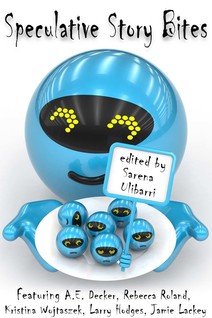 "A Persistence of Ghosts" by Gregory Scheckler is original fiction from the anthology Speculative Story Bites. Get the whole anthology from Amazon, Kobo, or World Weaver Press. Glossolalia: incomprehensible speech in an imaginary language, sometimes occurring in a trance state, an episode of religious ecstasy, a schizophrenic episode, or meshnet interpausations. I heard the whirr and pump of liquids pushing through an intravenous array, linked by clear plastic tubing to my elbow. My second memory sequence came into focus. My fingers burned. I blinked. White-grey ceiling tiles flaked and gathered dust. A woman who seemed familiar stood by my bed. She said, “Hello?” I wanted to say something. I couldn’t speak. I must’ve looked confused. She said, “It’s me, Reena, your wife.” My mouth refused to produce words. Reena was angelic, brunette, her features soft and her cheekbones puffy. She seemed right, normal as far as I could tell. She didn’t melt. I was awake. She said, “You don’t know how you got here, do you?” All I could remember was snow, a night walk, some residual anger. She said, “You must’ve fainted again. I found you flat face-down on the side of the road. I flagged down one of the plows when they came, and we took you here. You’ve been out for a day.” “Hrrrrung,” I said. I wanted to say more. Nothing else came out. She said, “I love you, but I’m sick of introducing myself to you. I can’t take it anymore. We have to do something.” *** A day or two or three passed while I lounged in the hospital bed and fought through bouts of confusion. The blare of other patients’ NetLoop shows, and the machinery of hospitals together zipped and echoed around the room: rolling wheels on carts and beds, the soft slap of nurses’ work shoes on tile floors, the beeps and whirrs of pumps and electrodes attached to me. The neurotechnologist reviewed the readouts from my meshnet and my brain. She said, “No sign of a tumor. And your meshnet isn’t quite synced yet. So we’re running through some routine protocols to see if we can find a better sync. I’m sorry it’s taking so long. You know how it is, the patterns of millions of neurons have to be set just so, and it’s a little different for each one of us.” She had a nice smile. I wanted to remember it forever. I still couldn’t speak and got nothing to come out of my mouth. The nurses walked me up and down the hall. They said I had to walk to keep the motor centers of my nervous system active and keep my muscles from atrophy. “What, cat got your tongue?” said a patient. I waved. The nurse said for me, “He’ll be back to full brain in no time.” I didn’t feel like I would. But I was happy that they thought so. The next two days I tried to chat with the staff and the neurotechnician. They looked quite puzzled by me. But they let me go home and Reena was fine with that. Home. There were plenty of photos and portraits around, books about Physics and Neuroscience—my passions, said Reena. I thought it might not be my home at all. Nothing seemed familiar. I pretended it was. The photos did look like me. And Reena hugged me many times. She seemed happy I was there, but her eyebrows often squinched up and I caught her consulting the Internet for more information about recovery from meshnet interpausations, the gaps caused by trying to get them to make a good fit. Neural Lace. It was supposed to be so easy. “The neurotechnician said it could be a few more days. My memories should come back. I hope they do because,” I said, “you really seem great and I want to remember our relationship. For you.” Reena said, “Oh dear, don’t talk. I can’t understand a word you say. Just give it some time.” She brushed my hair and fed me some soup. I had trouble holding the spoon myself. My hand wobbled. My wrinkled, knurled knuckles presented only one conclusion: I was rather old. Probably not much use, really. I was very lucky to have Reena’s help, and glad for all of the medical resources. I slept in tiny fits. My neck hurt and my tongue stayed too stiff. I remembered a quite explicit dream where a brain fell into a very small gravity well, and spun like a star. Everything in the universe that has mass pulls at each other. Gravity. But light doesn’t have mass, just momentum, lots of momentum. And I wondered about memories. Do they have mass? If they don’t, isn’t that maybe why they keep pulling apart? Do memories have momentum? It must’ve been a very long time for them to pull so far apart from each other. But neurons surely had a little mass, and the brain itself, about three pounds of attractive force, spinning. ***
We're pleased to announce the second book in the Genie Chronicles series, SOLOMON'S BELL by Michelle Lowery Combs, will be available March 7, 2017.
To save her family, Ginn uses her newfound genie powers to transport herself and her friends to 16th century Prague. Only one thing there remains the same as at home: she can't let anyone know what she really is.
Title: SONOFAWITCH! Anthologist: Trysh Thompson Open for Submissions: February 1, 2017 to March 31, 2017 Expected Publication: Fall 2017 Story Length: up to 15,000 words Payment: $10 + contributor copy No one is perfect—not even a witch. Witches have amazing power at their fingertips to do unbelievable things. That magic can come in really handy sometimes too. They can make someone fall in love, poison an apple to enact a sleeping curse, banish an enemy to an alternate reality, or just to conjure up some Nutella when there is none in the house. But what happens when those spells go horribly awry? SONOFAWITCH! seeks humorous stories of spells gone wrong. What spell fell apart and how did the witch get out of it? Give me a contemporary setting (mainly because it lends itself to more humor). The rest is up to your imagination. Audience: Preference for Adult/New Adult, though a thoroughly compelling YA is fine. How to Submit: Between February 1 and March 30, 2017, send stories as an attachment (.doc, .docx, or .rtf only) to thompson[at]worldweaverpress[dot]com. About the Anthologist Trysh Thompson is a technical writer by day and by night, she’s a superhero who goes by the name “Mom.” In the past, she was a journalist and a movie critic for a small paper (yes, Virginia, they do still exist). For fun, she watches anything with Gordon Ramsay, writes, reads, and tries desperately to sing (alas, the tone-deaf fairy visited her early in life). A die-hard Kentucky Wildcats basketball fan, careful what you say around her in March. She's the editorial force behind the Covalent Bonds anthology and Bite Somebody by Sara Dobie Bauer.
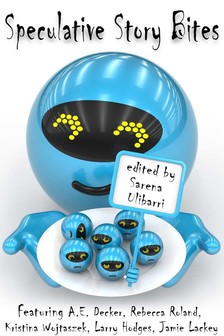 "All the Pieces of My Heart" by Dianne M. Williams is original fiction from the anthology Speculative Story Bites. Get the whole anthology from Amazon, Kobo, or World Weaver Press. Tonight is going to suck. My girlfriend’s birthday falls on the full moon this year and it’s time to let her in on the truth. Last night’s fight was bad. That’s the third or maybe the fourth time we’ve fought about the fact that I can’t be there for her on certain nights and it keeps getting worse each time. She stormed out on me and hasn’t picked up my calls since. But I need her to listen. Claire is The One. I trust her. I want to spend my life with her. My secret ruins every good relationship I’ve ever had. But I’m going to tell her everything tonight, one way or another. I talked it through with my support group. I tried writing it out. But I’m too much of a coward. I can’t tell her face-to-face. I just can’t. And this doesn’t feel like something you can explain with a text. I’m a werebear, you see. That’s what we call it. But it sounds way cooler than it is. The only kind of bear I can turn into is a teddy bear. The stuffed kind. About two feet tall with big ears and brown fur and a stupid pink nose. I’m a wereteddy. I adjust the giant gift bow that I’m tying around my neck and add the tag. “I’m sorry I can’t be with you tonight. I’ll explain everything in the morning. Please accept this replacement until then,” it says. I figure the best way to explain it all without sounding nuts is to show her. With any luck, we’ll wake up snuggling in bed together and it will all be clear. Whatever happens, she’ll find me in the morning after I change back into a person. She’ll laugh and I’ll laugh and we’ll get past it all. I hope I don’t wake up jammed behind the dresser, again. My phone warns me a few minutes before moonrise and I rush over and plop myself down in the middle of her bed. She’ll be back from her birthday party in an hour or so and find Teddy waiting for her. Things are out of my hands once I change. I can’t move or speak in my bear form. I’ll experience the world as a passive observer only. My arms stretch out in front of me as my fingers fuse into stubby paws. The smile on my face becomes Teddy’s embroidered grin. My ears pull themselves up to the top of my head and synthetic fuzz breaks out all over my body. The butterflies in my stomach abate as my guts turn to stuffing. I don’t have much concept of time as Teddy, but after a while I hear the front door open and close downstairs and the jangle of her keys as she tosses them on the table beside the door. It sounds like she’s been drinking. A lot. And it sounds like she goes to the fridge to keep drinking. My head starts to get heavy and I fall backwards onto the bed. Stupid bear form. Her footsteps are muffled by the comforter as she paces the living room downstairs. She’s mumbling to herself again. Back and forth and I want to shout down to her: Come upstairs. Come and see what I am! I want her to wrap her arms around me and I’ll know that everything will be okay. I hear her footsteps on the stairs. They’re slow. Deliberate. And growing louder as they approach the top step. She’s on the top floor now and I could kick myself for not propping my head up better on a pillow or something. I won’t see her face the first time she sees this form. If you're nominating books and stories for any of the science fiction and fantasy awards, we hope you'll consider what we published in 2016. World Weaver Press published nine books in 2016: four novels, two novellas, and three short fiction anthologies. All of our eligible work is listed below. More information (including excerpts and reviews) can be found by clicking on each book's cover. If you would like to obtain a copy of anything listed here primarily for award consideration, please contact our publicity manager. Novel
Novella
AnthologyIndividual eligible stories within these anthologies are listed as short story or novelette in their own categories below.
Novelette From He Sees You When He's Creepin': Tales of Krampus, edited by Kate Wolford
Short STory From Sirens, edited by Rhonda Parrish
From Speculative Story Bites, edited by Sarena Ulibarri *Stories with hyperlink can be read online for free. Reprints excluded from list.
From He Sees You When He's Creepin': Tales of Krampus, edited by Kate Wolford
|
World Weaver PressPublishing fantasy, paranormal, and science fiction. Archives
February 2024
|
- Home
-
Books
-
All Books
>
- Beyond the Glass Slipper
- Bite Somebody
- Bite Somebody Else
- Black Pearl Dreaming
- Cassandra Complex
- Causality Loop
- Clockwork, Curses, and Coal
- Continuum
- Corvidae
- Cursed: Wickedly Fun Stories
- Dream Eater
- Equus
- Fae
- Falling of the Moon
- Far Orbit
- Far Orbit Apogee
- Fractured Days
- Frozen Fairy Tales
- Glass and Gardens: Solarpunk Summers
- Glass and Gardens: Solarpunk Winters
- Grandmother Paradox
- Grimm, Grit, and Gasoline
- Haunted Housewives
- Heir to the Lamp
- He Sees You When He's Creepin': Tales of Krampus
- Into the Moonless Night
- Jack Jetstark's Intergalactic Freakshow
- King of Ash and Bones (ebook)
- Krampusnacht
- Last Dream of Her Mortal Soul
- Meddlers of Moonshine
- Mothers of Enchantment
- Mrs Claus
- Multispecies Cities
- Murder in the Generative Kitchen
- Recognize Fascism
- Scarecrow
- Sirens
- Shards of History
- Shattered Fates
- Skull and Pestle
- Solarpunk (Translation)
- Solarpunk Creatures
- Solomon's Bell
- SonofaWitch!
- Speculative Story Bites
- Trenchcoats, Towers, and Trolls
- Weredog Whisperer
- Wolves and Witches
- Anthologies and Collections
- Novels
- Novellas
- Fairy Tale
- Fantasy
- Romance
- Science Fiction
- Urban/Contemporary Fantasy
- Young Adult SFF
-
All Books
>
- Blog
- About
- Contact
- Press / Publicity
- Newsletter Signup
- Privacy Policy
- Store


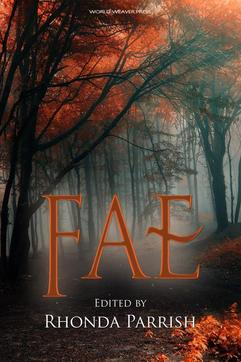




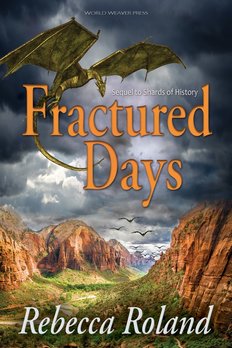
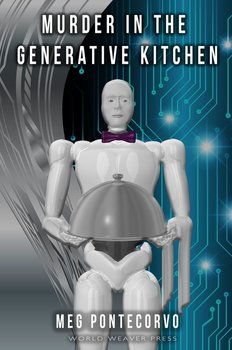
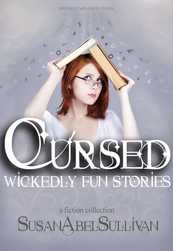



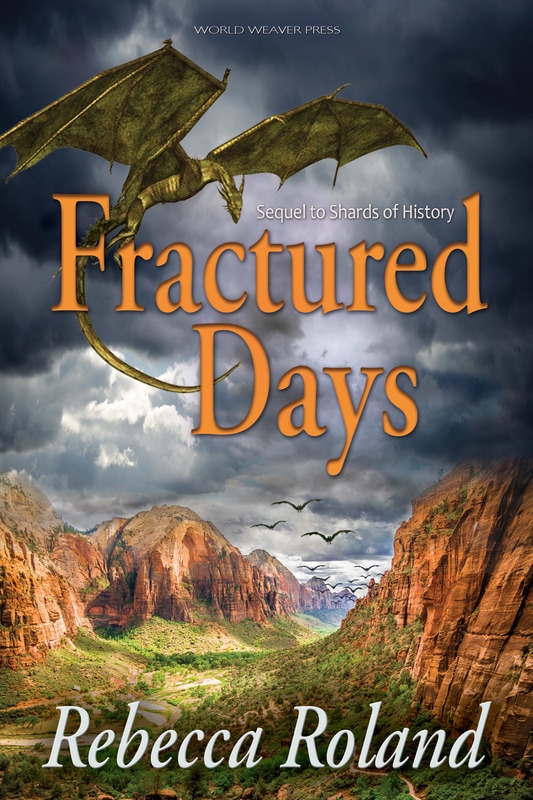
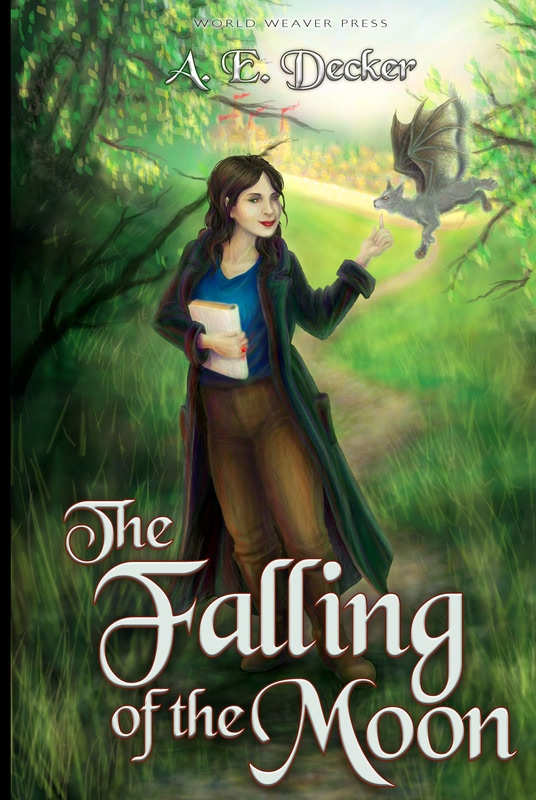



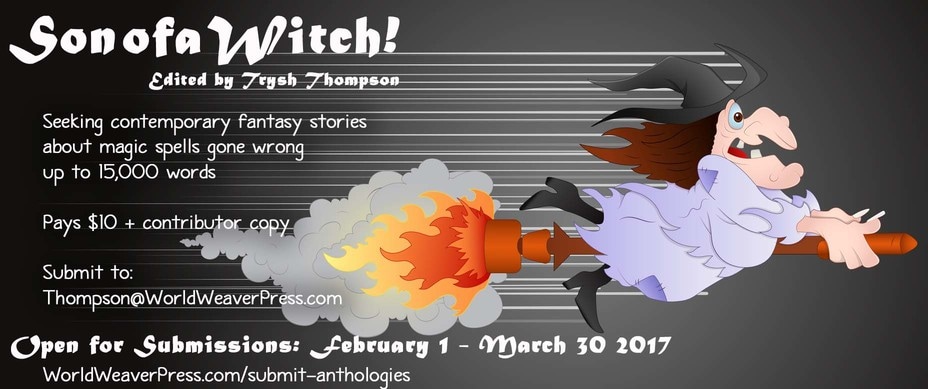
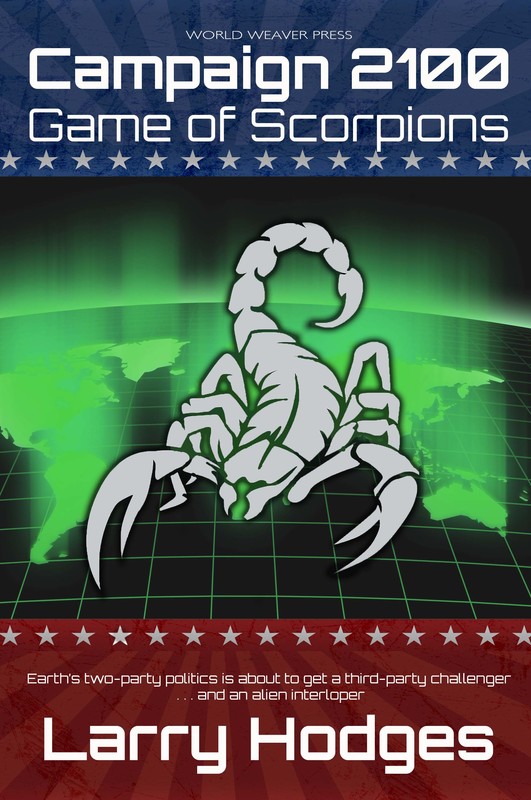


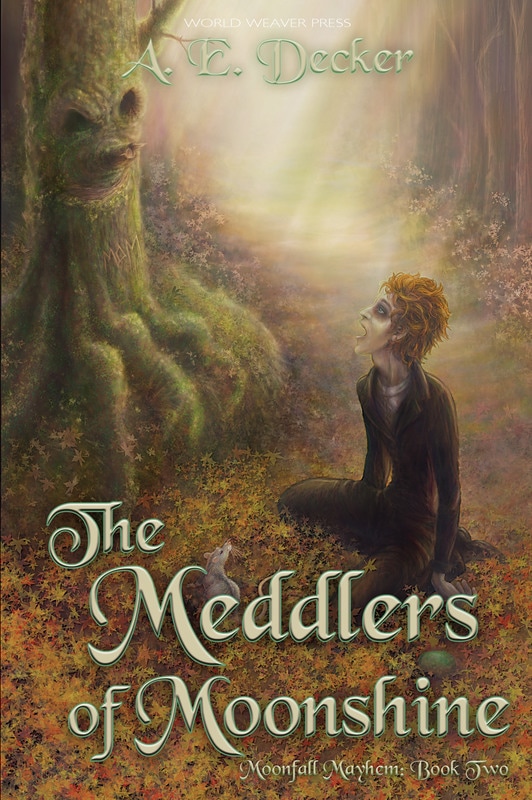

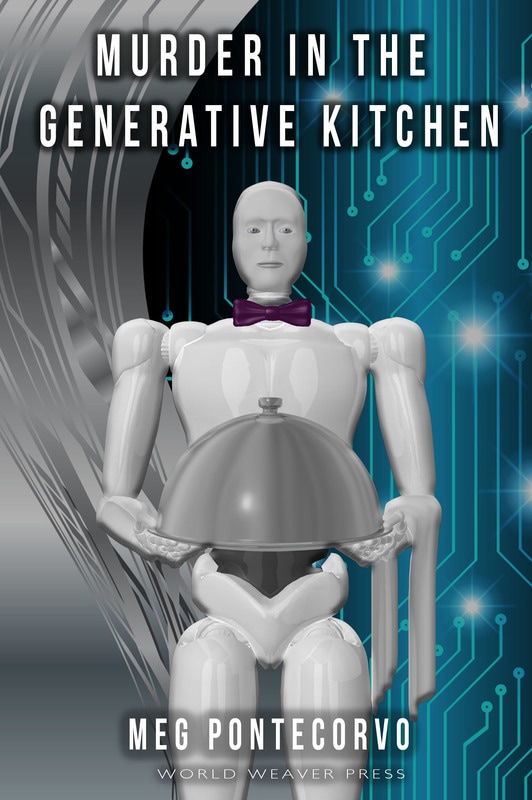
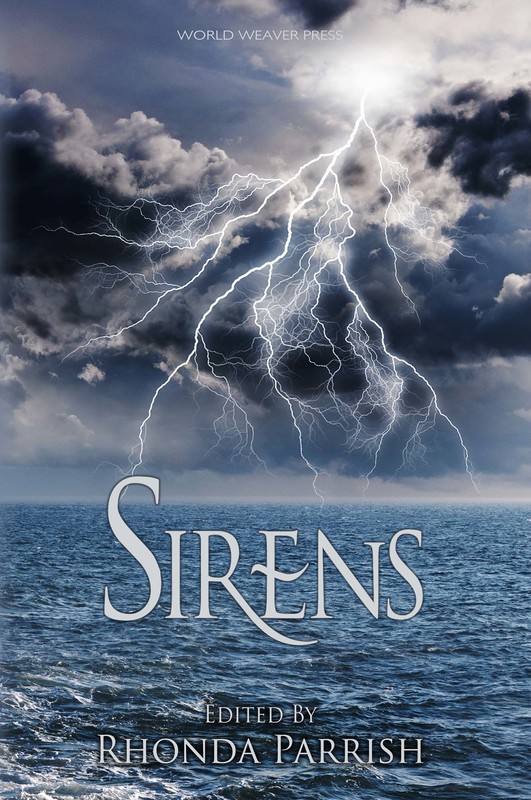

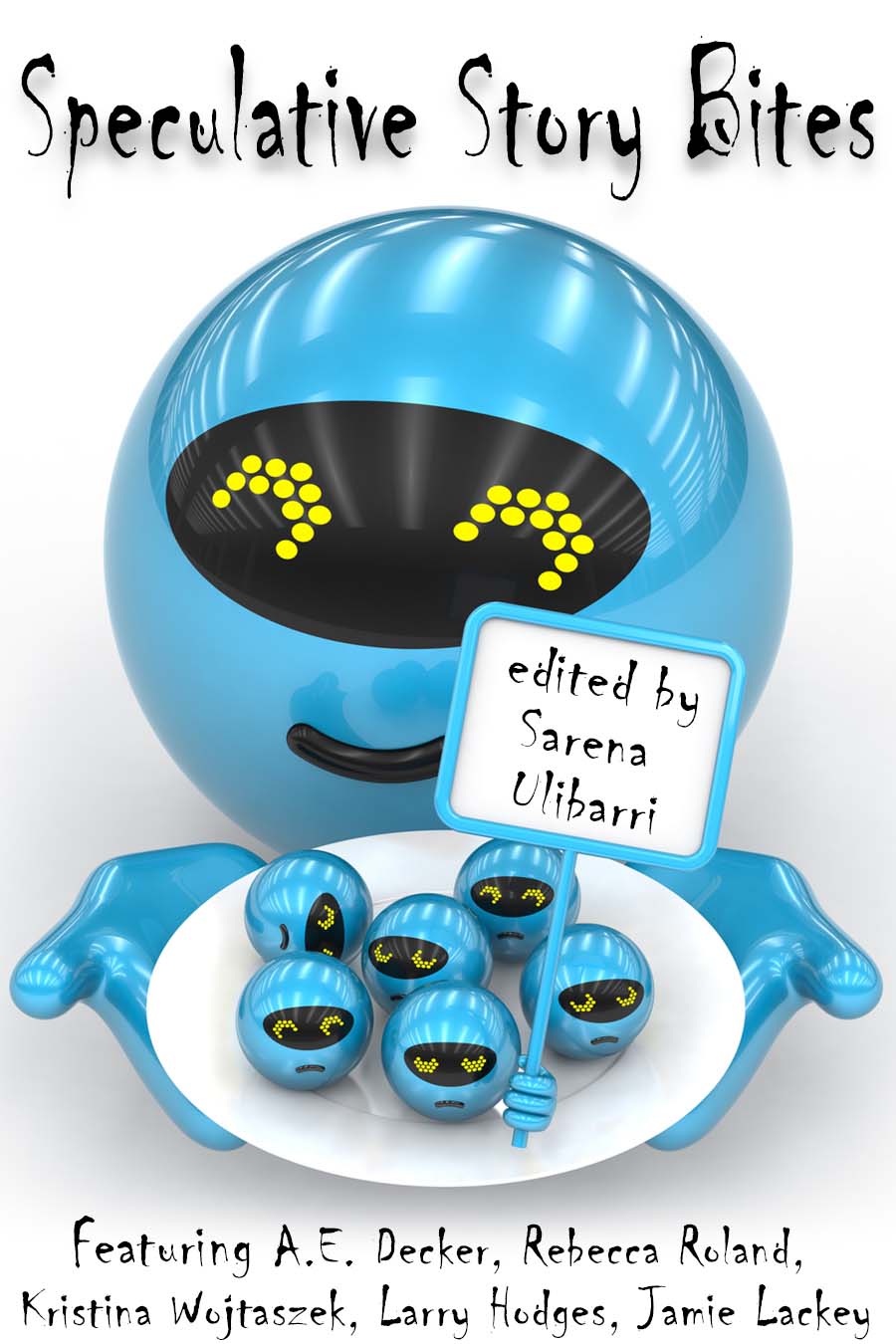
 RSS Feed
RSS Feed